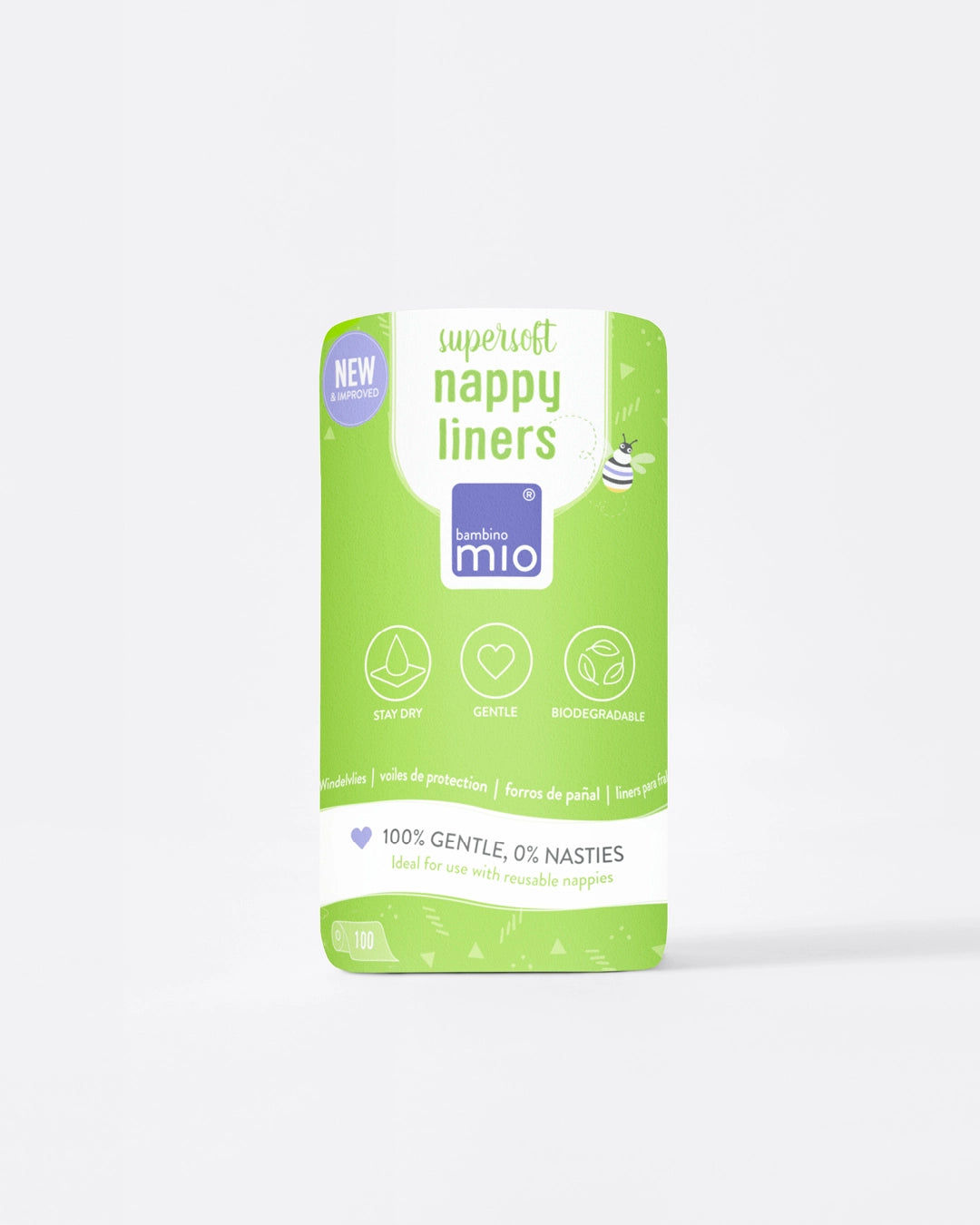Week 35 of Pregnancy | How Big is Your Baby at 35 Weeks?
Share Options
- Bambino Mio
- 29 / 06 / 2023

Inside this Article:
Pregnancy is a time of huge change for you, your body and your life. Our guide will help you through this amazing time, letting you know what to expect at each stage and, most excitingly, what your baby is up to each week.
Your baby is the size of a honeydew melon!
At 35 weeks of pregnancy, your baby is 45.5cm (18in) in length from crown to heel and 32cm (12.5in) from crown to rump. They’ve also probably passed the 2.5kg (5.5lbs) mark by now and look pretty much like a full-term baby.
If your baby is born at 35 weeks, they’re considered to be late premature (1) and while they might need some oxygen and monitoring after birth, they don’t need as much care as babies born earlier.
Baby’s brain is growing rapidly!
Your baby will look completely developed at 35 weeks, but there’s still some work to do on that amazing brain of theirs. The last four or five weeks of pregnancy see the weight of a baby’s brain increasing by around a third to a half (2) before they’re full term.
The rest of your baby’s body is also busy growing, by around 200-225g (0.5lbs) each week. With each gram, your baby loses their wrinkled appearance and takes on that cute chubbiness we all love to see.
How you’re feeling at 35 weeks of pregnancy
You’ll be having Braxton Hicks contractions (3) fairly regularly now, as well as feeling tired and swollen. You’ll also be weeing frequently as your bladder is squashed and doesn’t have its usual capacity.
Week 35 of pregnancy also brings headaches for some women (4). You might have had headaches in your first trimester due to hormonal changes and the sudden increase in blood volume, while third trimester headaches are often due to fatigue, postural changes and stress.
Check with your midwife or GP to make sure you’re OK to take paracetamol if your headaches are bad. Paracetamol is safe for most pregnant women to take, but you might prefer to avert headaches in the first place by improving your posture, maintaining your blood sugar, drinking water to raise your hydration levels and getting as much rest as you can.
You’ll probably have difficulty sleeping at 35 weeks of pregnancy, which can contribute to those headaches. It’s hard to find a comfortable position in bed, you’re waking up to pee, you’re thinking about work and and, of course, the impending arrival of your baby. Almost 80% of women say they have sleep problems during pregnancy (5), so you’re not alone.
Staying healthy at 35 weeks pregnant
Eating healthily (6) is still very important for you and your baby, who’s growing rapidly now. Eat regular small meals and healthy snacks to maintain your blood sugar levels and remember to keep drinking plenty of water throughout the day (even though it seems you’re spending all of your time in the loo).
Getting at least some decent sleep will help you to feel better, so follow these tips to rack up some more ZZZs:
- Don’t eat too close to bedtime or eat acidic foods so that you’re not plagued by heartburn or indigestion
- Avoid caffeinated drinks from early afternoon onwards
- Take some exercise during the day so that you’re physically tired and (hopefully) a bit less stressed
- You do need your naps when you’re 35 weeks pregnant, but try to fit them in earlier in the day
- Use your pregnancy pillow to help you to get comfortable and feel supported in bed at night and during daytime naps
- Try to avoid electronics and TV before you go to bed - read a book or take a warm bath instead
- If your pregnancy insomnia (7) is severe, your GP or midwife will be able to help you, so talk to them about potential solutions
Things you need to think about when you’re 35 weeks pregnant
With just five weeks to go, you might start feeling as if your baby could arrive any day and once you hit 37 weeks, you’re actually considered full term by some doctors!
It’s time to put any finishing touches on your nursery, set up your changing station and increase your stash of reusable nappies and wipes, as well as find out more about labour, birth and feeding your baby.
You’ve probably finished work by now, or you’re about to and so making a few social plans for the period between now and baby’s arrival will help you to feel connected to friends and family.
If you have a dog or a cat, it’s a good idea to get them ready for the new arrival (8). Let your pet smell any lotions and washes you may be using on your baby and their clothes and play some sounds of babies crying or gurgling so your pet isn’t shocked by this alien creature who’s suddenly descended upon them!
Citations and References
(1) National Health Service (NHS). ‘What to Expect in Your Baby’s Development. 32-36 Weeks’ Gestation.’ 2023. Web. mft.nhs.uk/saint-marys/services/newborn-intensive-care-unit-nicu/what-to-expect/32-36-weeks-gestation
(2) National Institutes of Health (NIH). National Library of Medicine. ‘Third Trimester Brain Growth in Preterm Infants Compared With In Utero Healthy Fetuses.’ 2016. Web. www.ncbi.nlm.nih.gov/pmc/articles/PMC5079081
(3) National Institutes of Health (NIH). National Library of Medicine. ‘Braxton Hicks Contractions.’ 2022. Web. www.ncbi.nlm.nih.gov/books/NBK470546
(4) National Health Service (NHS). ‘Common Symptoms in Pregnancy. Headaches in Pregnancy.’ 2021. Web. www.nhs.uk/pregnancy/related-conditions/common-symptoms/headaches
(5) National Health Service (NHS). Common Symptoms in Pregnancy. Tiredness and Sleep Problems. 2021. Web. www.nhs.uk/pregnancy/related-conditions/common-symptoms/tiredness
(6) National Health Service (NHS). ‘Keeping Well in Pregnancy. Eating Well in Pregnancy.’ 2023. Web. www.nhs.uk/pregnancy/keeping-well/have-a-healthy-diet
(7) National Health Service (NHS). Common Symptoms in Pregnancy. Tiredness and Sleep Problems. 2021. Web. www.nhs.uk/pregnancy/related-conditions/common-symptoms/tiredness
(8) PDSA. ‘Pets and Babies. Helping Pets Prepare for a New Arrival.’ Web. www.pdsa.org.uk/pet-help-and-advice/looking-after-your-pet/all-pets/pets-and-babies-helping-pets-prepare-for-a-new-arrival
Pregnancy by Week, What to Expect































